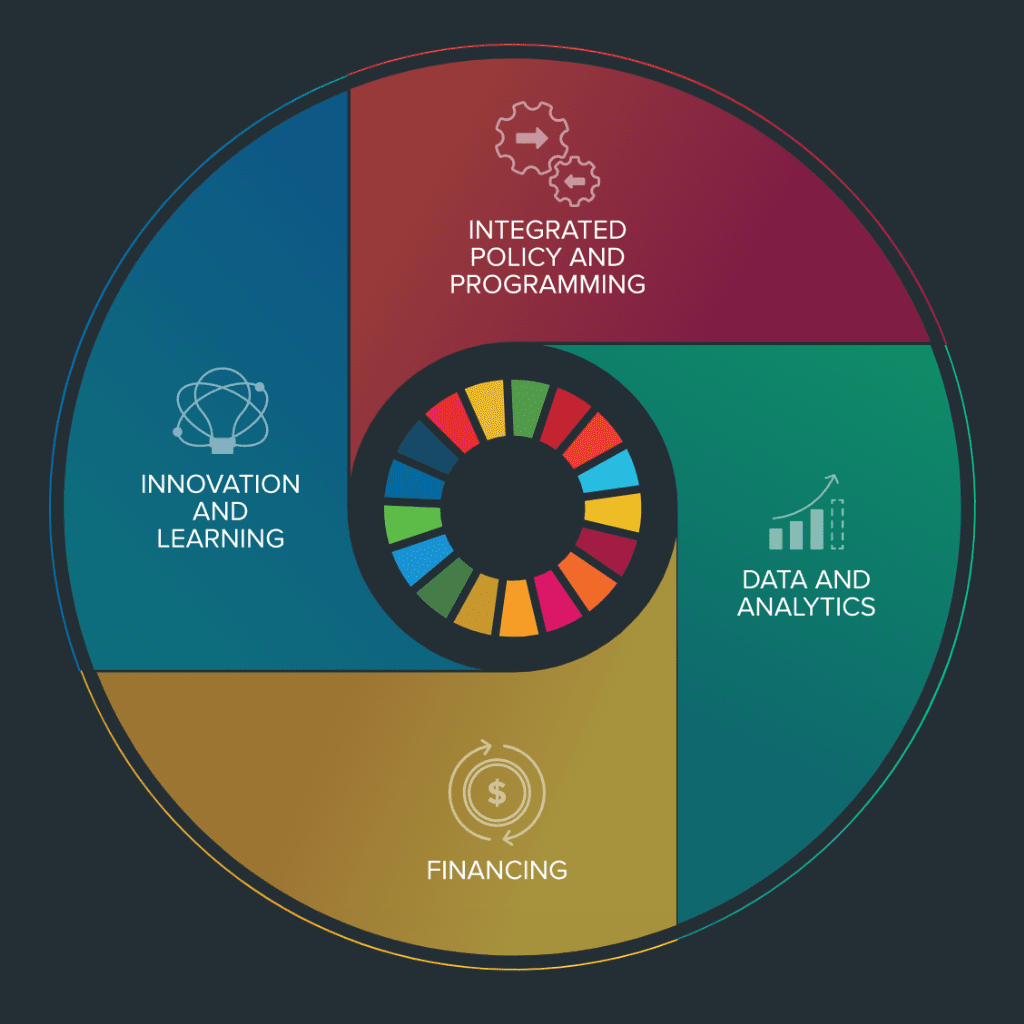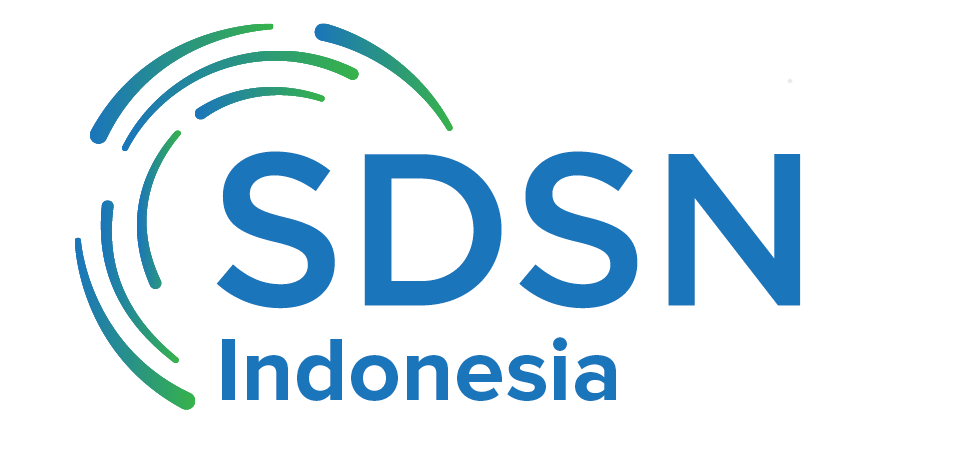Tin tức
Exploring the Future of Sustainable Development at httpssdg2030indonesia.org
Sustainable development has emerged as a crucial concept that intertwines environmental, social, and economic factors to create a balanced and equitable future for our planet and its inhabitants. The Sustainable Development Goals (SDGs), established by the United Nations, aim to address global challenges such as poverty, inequality, climate change, environmental degradation, peace, and justice. As we look towards the future, Indonesia’s commitment to these goals is evident through initiatives such as those outlined on the website https://sdg2030indonesia.org/. This article delves into various aspects of sustainable development, exploring the vital work being done in Indonesia and how it can serve as a model for the world. Posted by https://sdg2030indonesia.org/
Understanding Sustainable Development

Sustainable development is not merely about conserving natural resources; it encompasses a holistic approach that integrates economic growth, environmental stewardship, and social inclusion.
Definition of Sustainable Development
At its core, sustainable development can be defined as meeting the needs of the present without compromising the ability of future generations to meet their own needs. This principle emphasizes the importance of balance among three pillars: economic, social, and environmental.
The economic dimension focuses on creating wealth and improving living standards while ensuring that resource use is efficient and sustainable. The social aspect promotes inclusivity and equity, ensuring that all individuals have access to basic services, opportunities, and rights. The environmental dimension highlights the need to protect natural ecosystems and biodiversity as part of responsible stewardship of the planet.
Historical Context
Understanding the evolution of sustainable development is key to appreciating its significance today. The concept gained traction in the late 20th century, particularly following the publication of the Brundtland Report in 1987, which introduced the term “sustainable development” to a global audience.
Since then, numerous international agreements and frameworks have been established, culminating in the creation of the SDGs in 2015. These 17 interconnected goals set a global agenda for sustainable development that countries around the world, including Indonesia, have embraced.
The Role of Global Cooperation
Achieving sustainable development requires collaboration across borders and sectors. International partnerships play a crucial role in sharing knowledge, technology, and financial resources.
For instance, Indonesia benefits from various collaborations with NGOs, governments, and private sectors to implement projects aimed at achieving the SDGs. These partnerships foster innovation and enable countries to learn from each other’s successes and challenges, thereby strengthening global efforts towards sustainability.
Indonesia’s Commitment to the SDGs

Indonesia stands at a pivotal moment in its sustainable development journey, with significant commitments made towards achieving the SDGs by 2030.
National Policies and Frameworks
The Indonesian government has established a range of policies aimed at integrating the SDGs into national development plans. The National Medium-Term Development Plan (RPJMN) serves as a roadmap for aligning local and national strategies with the global agenda.
This alignment not only demonstrates Indonesia’s commitment to sustainable development but also ensures that various stakeholders, from the government to civil society and the private sector, are engaged in the process.
Local Initiatives
Beyond national policies, grassroots movements and local initiatives are instrumental in advancing the SDGs within communities. Various programs focusing on education, health, gender equality, and environmental protection have sprung up throughout the country.
Local NGOs and community organizations often spearhead these initiatives, providing tailored solutions that reflect the unique needs and challenges faced by different regions. Such localized approaches promote ownership and accountability, essential components for successful implementation of sustainable development goals.
Challenges Ahead
Despite Indonesia’s progress, several challenges remain. Rapid urbanization, deforestation, and climate change pose significant threats to sustainable development.
Addressing these challenges requires sustained efforts and innovative solutions. For example, Indonesia’s commitment to reforestation and renewable energy sources reflects a proactive stance against climate change. However, balancing economic growth with environmental conservation remains a complex task that necessitates comprehensive strategies and public engagement.
Education and Awareness in Sustainable Development

Education plays a critical role in fostering a culture of sustainability. Raising awareness among citizens about the importance of sustainable practices can catalyze significant changes at individual and community levels.
Integrating Sustainability into Education Curricula
Incorporating sustainability concepts into education systems is vital for nurturing future generations who are mindful of their impact on the environment. Schools and universities in Indonesia are increasingly adopting curricula that emphasize sustainability principles.
These educational programs provide students with the knowledge and skills necessary to tackle environmental challenges and advocate for sustainable practices. As young minds are shaped by this education, they become catalysts for change within their families and communities.
Community Engagement and Workshops
Beyond formal education, community engagement initiatives are equally important in raising awareness about sustainable development. Workshops, seminars, and outreach programs create spaces for dialogue and learning, enabling individuals to share experiences and insights.
Such initiatives empower communities to take collective action toward sustainability. By equipping individuals with information and resources, they are better positioned to make informed decisions that contribute to sustainable development goals.
The Role of Media and Technology
In today’s digital age, media and technology serve as powerful tools for promoting sustainable development. Social media platforms and online campaigns can amplify messages and reach wider audiences, facilitating knowledge sharing and mobilization.
By harnessing the power of technology, organizations can disseminate information, engage with citizens, and promote sustainable practices more effectively. The potential for creating an informed and active citizenry is immense when traditional and modern communication channels converge.
The Economic Dimension of Sustainable Development

Economic growth is essential for sustainable development, yet it must be pursued in a manner that is inclusive and environmentally sound.
Promoting Green Economies
Transitioning towards a green economy involves restructuring economic activities to minimize environmental impact while maximizing social benefits. This shift entails investing in renewable energy, sustainable agriculture, and eco-friendly technologies.
In Indonesia, initiatives promoting eco-tourism and sustainable fisheries are examples of how economic activities can align with environmental stewardship. By prioritizing sustainability in economic planning, Indonesia can enhance resilience against climate change while fostering job creation and community development.
Addressing Inequality
Ensuring that all segments of society benefit from economic growth is a cornerstone of sustainable development. In Indonesia, efforts to reduce poverty and inequality are crucial for realizing the SDGs.
Programs aimed at empowering marginalized communities, offering vocational training, and improving access to markets can help bridge socioeconomic gaps. Acknowledging the interconnectedness of economic prosperity and social equity is vital for creating sustainable and cohesive societies.
Innovation and Technology
Innovation is a driving force behind sustainable economic development. Embracing new technologies can lead to more efficient resource use, reduced waste, and improved productivity.
In Indonesia, startups and entrepreneurs are developing innovative solutions that address environmental challenges while creating economic opportunities. Supporting such initiatives through funding and mentorship can accelerate the transition towards a more sustainable economy.
Environmental Protection and Biodiversity Conservation

Protecting the environment and preserving biodiversity are fundamental to achieving sustainable development. The rich ecosystems of Indonesia, from tropical rainforests to coral reefs, are invaluable resources that require careful management.
Importance of Biodiversity
Biodiversity is essential for human survival, providing ecosystem services such as clean air, water, food, and medicine. Indonesia is one of the most biodiverse countries in the world, hosting a plethora of unique species and ecosystems.
However, habitat destruction, pollution, and climate change threaten this biodiversity. Recognizing the intrinsic value of nature and promoting conservation efforts are critical steps towards safeguarding these priceless resources for future generations.
Conservation Efforts
Indonesia has made significant strides in conservation efforts through various protected area initiatives, wildlife reserves, and community-based conservation programs.
Collaborative approaches involving local communities in conservation activities ensure that traditional knowledge and practices are respected while promoting sustainable livelihoods. Empowering communities to manage their natural resources fosters a sense of responsibility and ownership, leading to more effective conservation outcomes.
Climate Change Mitigation
Addressing climate change remains a pressing global challenge. Indonesia’s vulnerability to climate impacts necessitates proactive measures for mitigation and adaptation.
Investing in renewable energy sources, enhancing disaster preparedness, and implementing sustainable land-use practices are crucial strategies. As a nation prone to natural disasters, Indonesia must prioritize climate resilience to safeguard its people, economy, and ecosystems.
FAQs
What are the Sustainable Development Goals?
The Sustainable Development Goals are a universal call to action developed by the United Nations to end poverty, protect the planet, and ensure prosperity for all by 2030. There are 17 interconnected goals that address various global challenges.
How can individuals contribute to sustainable development?
Individuals can contribute to sustainable development by adopting sustainable practices in daily life, such as reducing waste, conserving energy, supporting local businesses, and advocating for social and environmental justice.
What role does education play in sustainable development?
Education is crucial for raising awareness about sustainability issues and equipping individuals with the knowledge and skills needed to address these challenges. It fosters a culture of sustainability and empowers future generations to make informed decisions.
How does Indonesia address environmental protection?
Indonesia addresses environmental protection through policies aimed at conservation, sustainable resource management, and combating climate change. Initiatives often involve collaboration with local communities and organizations.
Why is economic growth important for sustainable development?
Economic growth provides the resources and opportunities necessary to improve living standards and reduce poverty. However, it must be pursued in an inclusive and environmentally sustainable manner to ensure that it benefits all members of society.
Conclusion
As we explore the future of sustainable development, it is clear that the path to achieving the SDGs requires a multifaceted approach that encompasses economic growth, social inclusion, and environmental protection. Indonesia’s commitment to these principles, as highlighted on https://sdg2030indonesia.org/, showcases the potential for transformative change when diverse stakeholders come together. By fostering awareness, promoting education, and embracing innovation, Indonesia can pave the way for a sustainable and equitable future. The lessons learned from Indonesia’s journey can inspire other nations to adopt similar strategies, creating a ripple effect that resonates across the globe. Sustainable development is not just a goal; it is a shared responsibility that calls for collective action to ensure a thriving planet for generations to come.
